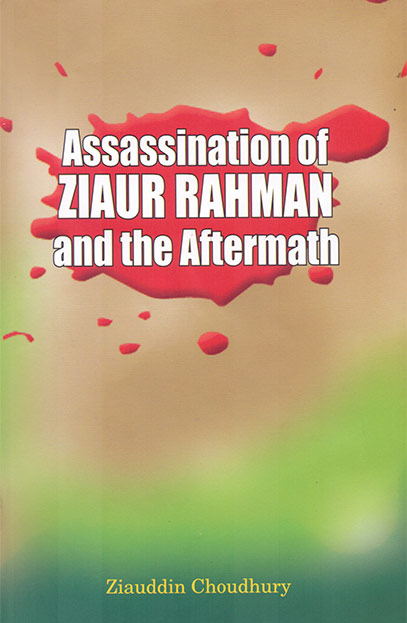Assassination of Ziaur Rahman and the Aftermath
https://uplbooks.com/shop/9847022000400-assassination-of-ziaur-rahman-and-the-aftermath-8258 https://uplbooks.com/web/image/product.template/8258/image_1920?unique=eb95c9a
| Language: English |
Tags :
Book Info
The book is a chronology of events surrounding the assassination of late President Ziaur Rahman and the aftermath, as well as a brief commentary on Zia's rise to power. The author, who was Deputy Commissioner of Chittagong at the time of Zia's assassination, narrates these events from his perspective. It is a riveting account of the last hours of the most powerful man of Bangladesh at that time, and the series of events leading to the capture and assassination of another freedom fighter, late Maj. Gen. Manzoor Hussain. Zia gave birth to a new slogan Bangladeshi nationalism with an Islamic flavor. In doing so he also paved the way for the rehabilitation of the religion-based political parties and their leaders who had sided with the opponents of Bangladesh liberation. In the end, he was able to cobble together a new political party-- The Bangladesh Nationalist Party (BNP) - which was a potpourri of diverse political elements, lefties, centrists, religious zealots, and deserters from other political parties including the Awami League. As Zia busied himself with his newly acquired political power and a besotted political party, he drifted from the original power base the Army, in particular the freedom fighters section that he was aligned with at the beginning. Many of his new political associates were suspects in the eyes of his freedom fighter colleagues for their political past, anti-liberation stand, and perceived corruption. Zia's life was cut to a shot at the peak of his popularity by elements of the very forces that had catapulted him to power and had provided him the platform to success. From his vantage point, the author doubts if we will ever know if the officers charged and executed were the only people involved in Zia's assassination. If Gen. Manzoor actually gave the leadership to the failed coup attempt, or whether there was a more deep-rooted conspiracy that brought about the fateful events. The truth never came out, neither in the in-camera Army Court Martial nor the Army and Judicial inquiries that were set up by the Sattar government. Truth became a casualty of cover-ups, political shenanigans, and over time, indifference.

Ziauddin M. Choudhury
Ziauddin M. Choudhury was Deputy Commissioner of Chittagong at the time of President Ziaur Rahman's assassination during a failed army coup in May 1981.A member of the former Civil Service of Pakistan, Ziauddin Choudhury served the government from 1968-82, and thereafter World Bank where he continues to work. Prior to working as Deputy Commissioner of Chittagong (1978-81), Ziauddin Choudhury was Deputy Commissioner of Noakhali (1975-78), Private Secretary to Minister A.H.M. Kamruzzaman (1972-74, 1975), and Special Assistant in the Prime Minister's Secretariat (1972). Ziauddin Choudhury studied in the University of Dhaka, Punjab University (Lahore), Cornell University (NY), and American University (DC). Ziauddin Choudhury is married with two children. He lives in Maryland, USA.



